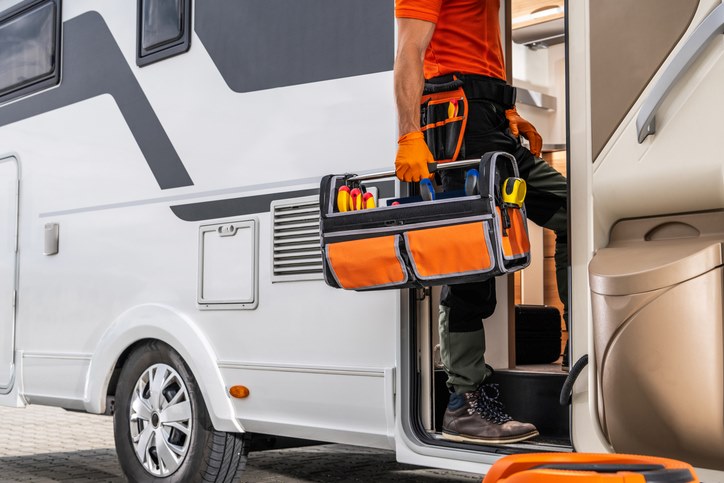RVing for the First Time? Here’s How To Best Prepare

Hitting the road in an RV is a wonderful way to enjoy the open road while making lifelong memories. Whether you’re a seasoned traveler or a first-time RV owner, proper preparation is key for a smooth experience. Our beginner RV guide has all the tips and tricks on how to prepare for your first RV trip so you can travel like a true expert.
Preparing for an RV Trip
Making a Travel Plan
Whether you’re heading off the grid on a summer tour of the Southwest or venturing to popular Colorado road trip destinations during the fall, plan your route carefully before heading out. Some roads aren’t RV-friendly, so research ahead to avoid obstacles. It’s also smart to mark your route on a paper map in case GPS fails. Campsites can fill up fast, so secure your spot in advance.
Adjusting Travel Time Expectations
Driving an RV takes up more time than in a regular car, so adjust your expectations. Many RVers follow the 2-2-2 or 3-3-3 rule, in which you drive 200 to 300 miles a day, check in by 2:00 or 3:00 p.m., and stay for two or three days. Avoid night driving and plan rest stops in advance.
Budgeting for Your Travels
Plan your budget by estimating costs for fuel, food, activities, and RV park fees. Renting an RV averages between $150 and $350 per night, depending on the vehicle’s age and size. Compare RV rental costs with hotels and flights to get the best deal.
RV Mechanical Checklist

Before setting out on your journey, check your RV thoroughly for any mechanical problems. If you’re not sure where to start or would like to prepare your RV without the help of an inspector, here’s a quick checklist:
- Engine. Check fluids, remove debris, and inspect the air filter.
- Tires. Look for cracks and damage, and be sure you have proper air pressure.
- Lights. Test headlights, taillights, and emergency flashers.
- Windows and mirrors. Clean and inspect for damage, testing wipers as well.
- Exterior. Secure awnings, jacks, and any towed vehicles.
- Interior. Stock emergency kits, secure loose items, and make sure insurance documents are accessible.
Packing List for an RV Vacation
Nothing ruins a trip faster than realizing you’ve forgotten to pack the essentials! Here are some must-have items you shouldn’t leave at home:
RV Travel Necessities
- Emergency supplies, including a stocked first aid kit, tools, and a jump starter
- Electrical adapters and surge protectors
- Fire extinguisher and road flares
- Bedding, blankets, and toiletries
- Chargers for personal devices
- Cookware, cutlery, and cleaning supplies
- Toolkit for any on-the-road maintenance
Outdoor Essentials
- Hiking gear and insect repellent
- Sunscreen and water bottles
- Matches and lighters
- Physical maps and GPS
- Binoculars and two-way radios
End Your RV Trip at Honey Bee RV Storage
Part of preparing for an RV trip is knowing where you’ll park your vehicle after your adventure. Honey Bee RV Storage has reliable, convenient solutions for RV storage that boast a variety of amenities, giving you back space in your driveway at an affordable rate. Call or contact us online today to find a Honey Bee RV Storage location near you!